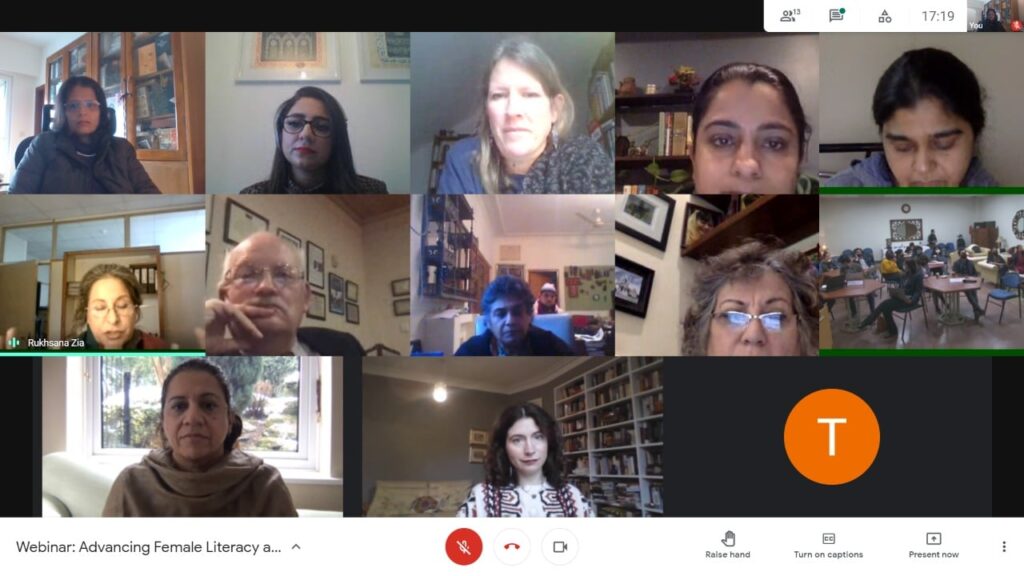Female Literacy and Empowerment in the sub-continent through Life Writing

I have spent an incredible four days (26-29 Jan 2021) in a webinar, spread across four countries and multiple time zones. The participants included 8 academics, 5 NGO reps, 21 students and 3 media consultants. It was organised and chaired by Siobhan Lambert-Hurley, Prof. of Global History, University of Sheffield, to discuss Female Literacy and Empowerment in the sub-continent through Life Writing.
“Life writing” is a loose term as it is documenting lives of women who do not necessarily document their lives in the straightforward linear narrative that is so often associated with predominant narratives. These are life stories created out of bits of evidence and stories gathered from the community and strung together to at times rescue women’s histories from the past or cobble together contemporary accounts. It is exciting, adventurous, relies on documentation and oral histories and is tough to define within the rules of traditional biographies. All of us gathered virtually to discuss material created so far, some of it has been made into draft stories, and we tried figuring out how best to work with the existing material to create these stories, perhaps even in a publishable format. There is a huge range of skill strengths and experiences in this team. This has to be garnered and capitalised upon in a constructive manner. The point being of sharing histories of women for future generations, something that Siobhan has been passionate for years!
It was fascinating hearing the learnings gleaned by the students and the partner organisations. The stories that have been created and the immense possibilities that lie in making these available to children, neo-literates and women in multiple languages, including Hindi, Urdu and English. The challenges that exist in making these available easily to many people and in many formats — print and digital. More importantly, passing on the learnings of the student in gathering oral histories, creating stories, learning to illustrate for children’s stories, creating a range of products, if necessary, translating them as well and learning about copyright.
So much was shared and discussed that it is impossible to put down in a few words. Hopefully the project will move beyond the pilot stage which has been incredibly successful in ensuring that most of the goals it set, were met.
29 January 2021
